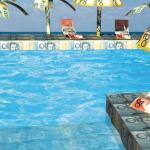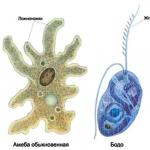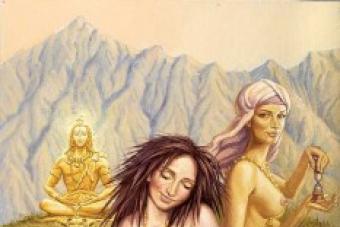In the body of an adult during the functioning of the gastrointestinal tract, any disorders and failures may appear, one of them is diarrhea. It is a continuous bowel movement with liquid feces. Appears during a minor poisoning and during the onset of a dangerous, probably permanent, illness. In the first variant, diarrhea can go away on its own with little or no treatment in 2-3 days, but in other situations, diarrhea can continue for 4 days or more, accompanied by various dangerous symptoms(fever, pain in the gastrointestinal tract, general lethargy). If the disease is not taken seriously enough, if it is not treated, then diarrhea will provoke dehydration, the occurrence of severely treatable acute and chronic diseases.
Diarrhea is not a disease, but a symptom that indicates disorders inside the gastrointestinal tract or the body completely. Therefore, it is impossible to eliminate diarrhea without first knowing what factors caused it. Diarrhea is discharge liquid stool both single and with an increased frequency of defecation. When such a disorder disappears after 2–3 weeks, it is acute form diarrhea, more than 21 days - chronic.
Causes of persistent diarrhea
In the normal state, the human body in adulthood is able to excrete up to 300 g of feces every day or at other intervals convenient for the gastrointestinal tract. Liquefaction and high evacuation of the stool can occur due to a sudden increase in water concentration: during diarrhea, stool is 90% liquid. The content of feces makes it possible to identify the origin of diarrhea:
- disorders of peristalsis in the intestines often do not contribute to an increase in the amount of feces excreted per day, this happens often, but in small portions;
- when the difficulty lies in the absorption of substances by the walls of the intestine, a significant increase in the volume of feces is observed due to the mass of undigested food.
The main causes of prolonged diarrhea in adults are:
- indigestion after a large amount eaten along with "difficult" food;
- minor poisoning;
- susceptibility to any product (allergy, hypolactasia);
- some medications(laxative, antacids, antiarrhythmic, anticoagulants);
- psycho-emotional situations (anxiety, fear, fright, in which diarrhea in an adult is the result of a hormonal surge);
- traveler's diarrhea (associated with climate change and nutrition).
Such diarrhea usually resolves by day 3 or 4, and the patient will most likely associate the persistent diarrhea with the above factors. If diarrhea does not go away within 5 days, this is a serious reason to consult a specialist.

But the causes of prolonged diarrhea in people in adulthood are much more serious:
- infection with microorganisms, viruses;
- inflammatory diseases of the digestive tract;
- functional insufficiency of organs (lack of any enzymes);
- diseases of the gastrointestinal tract of unknown origin (Crohn's disease);
- damage by toxins.
diarrhea symptoms
In these situations, it will not be enough just to stop prolonged diarrhea: you need to diagnose and implement appropriate therapy, often while in the hospital. Regarding clinical signs disease, they are mild. This refers to the usual indigestion, when, in addition to prolonged loose stools, there are spastic pain sensations inside the abdomen and dyspepsia (seething, bloating, flatulence).
It can have many reasons. Diarrhea is often accompanied by high fever, abdominal cramps, and vomiting. It does not cause significant problems for adults, but children can have quite serious complications.
Causes of loose stools in adults
Loose stools in an adult may be due to the use of dirty or unboiled water, allergies to food or medicines. Do not exclude the presence of an intestinal infection or stress. Diseases such as ulcerative colitis, rectal cancer, Crohn's disease, and malabsorption can also lead to diarrhea.
Adults usually cope with this ailment on their own. Unless, of course, diarrhea has overtaken in distant Asian or African countries. Here you can’t do without the help of doctors, because the infections that are in the air there can lead to death.
Treatment of loose stools in adults
During diarrhea, you should drink a lot of warm liquid: broth, water or tea. Alcohol, coffee, juices and milk should never be consumed. In order to digestive tract completely absorbed the incoming liquid, it is necessary to drink often and in small sips. This is the only way to exclude dehydration and not allow the liquid to fly through the body, like through a pipe.
If you don’t feel like eating, you don’t need to do this, the main thing is to drink. As soon as an appetite appears, you can eat bananas, rice, crackers or oatmeal, that is, everything that will help fix the stool and soothe the digestive tract.
Diarrhea rarely lasts more than two days. If the diet does not help, you can start taking medication. The cheapest means is considered "Activated carbon", the fastest - "Imodium". There are still a huge number of drugs for diarrhea, each person gets what suits him best.
In order for this to happen in the future unpleasant phenomenon not comprehended, it is necessary to carry out preventive measures, for example, wash hands before eating and after the street, carefully choose food. Eggs, meat, milk may contain a large number of bacteria. In order to destroy them, it is necessary to thoroughly wash the products and carry out the correct heat treatment. Boards, knives and utensils in the kitchen should be in perfect condition. Do not keep food out of the refrigerator for a long time, it can quickly deteriorate.
What is diarrhea?
If at home it is not possible to get rid of diarrhea, you need to call ambulance or just go to the hospital. Dehydration is the least of what prolonged diarrhea can lead to. If it's all about infection, the consequences can be dire.
Every person has had an upset stomach at least once in their life. Rarely does anyone give it great importance. But it happens that loose stools do not stop for a week or longer. What to do in such a situation and what complications to expect? Is it possible to recover by folk methods or is it time to call an ambulance? What if diarrhea is infectious nature? You will find answers to all these questions below.
Causes of loose stools in children
If your child complains of abdominal pain, and later diarrhea, then you first need to determine the cause. This will determine the further treatment strategy. If a child has eaten an expired product, then it will be enough to take a course of bifidobacteria to improve the functioning of the gastrointestinal tract. And if the diarrhea is of an infectious nature, then you can’t do without the help of a qualified doctor.
The most common causes of diarrhea in children are:
- development of infectious or inflammatory processes in the gastrointestinal tract;
- eating food that can provoke liquefaction of feces and bloating;
- the use of certain antibacterial drugs;
- severe stress.
How to determine the nature of the disease
The exact cause of diarrhea will help determine the color of loose stools in a child:
- black and green shades are possible when overeating stale grapes, dairy products, iron-containing drugs and activated charcoal;
- light shades fecal masses are typical for infants who have recently been transferred to artificial feeding;
- brown shade of stool - most often a violation of the intestines due to frequent use liquid food and drinks, an excess of carbohydrates (for example, the baby overate sweets the day before);
- a yellow tint (especially if loose stools with mucus) signals a danger: dangerous processes. It could be rotavirus infection, violation of the outflow of bile, problems with the pancreas, hepatitis of various origins.
When it's time to ask for help
Loose stools without fever usually do not cause anxiety in parents. Just think - well, the child ate something wrong. Most often this is the case.
But if the temperature rises in the evening, abdominal cramps signal pain, loose stools are like water in consistency - do not hesitate. Call an ambulance. If the doctor suspects the infectious nature of the disease, the child will be hospitalized. At home, treating such ailments is fraught with serious complications.
If in feces there are pronounced fractions (mucus, blood, undigested food residues) - this is also a reason to visit a pediatrician and a gastroenterologist. Such symptoms indicate problems with the pancreas. Subsequently, the development of pancreatitis is possible.
Folk remedies for diarrhea in children
If there is no temperature, pain and other alarming symptoms, then you can successfully treat loose stools in a child at home:
- Rice broth. Throw a handful of ordinary white uncooked rice into boiling water. Boil ten minutes. Drain the water and give the patient 30-40 ml every two hours. It has a firming effect.
- Children from four years old can be given pomegranate decoction. To prepare it, you need to pour a few pomegranate peels with boiling water and let it brew for 15-20 minutes. After the infusion has cooled, give the patient half a cup once an hour.
- Ordinary potato starch has a binding effect. It is necessary to mix a tablespoon of starch and 30 ml of pure boiled water. Give the resulting gruel to the child a teaspoon every two hours.
- Infusion from Boil a handful for ten minutes, the resulting liquid can be drunk as compote.
- An infusion of oak bark has astringent action. In terms of efficiency of removing toxins, it can compete with pharmacy activated charcoal. It is undesirable to drink more than 0.5 liters of oak bark infusion per day - it may occur allergic reaction.
- Strong black tea can help with uncomplicated childhood diarrhea. Brew natural Ceylon or Indian tea as strong as possible and let the child drink in small sips throughout the day. Sugar can be added in minimal quantities - a teaspoon per 300 ml.
- For diarrhea, chamomile is the #1 doctor. Chamomile tea you can give the child at any time (it is undesirable to add sugar, but if you can’t do without it, then a teaspoon per glass of liquid). It also has antibacterial and anti-inflammatory properties. Virtually no side effects.
Pharmacy medicines for childhood diarrhea
Can be grouped according to the principle of action on the body:
- Sorbents are taken primarily to relieve intoxication. Indispensable for diarrhea caused by infectious diseases and food poisoning. "Activated charcoal", "Enteros gel" - sold in any pharmacy without a prescription.
- Probiotics and prebiotics. Emulsions or powders that add beneficial microflora to the intestines. The child's stool is normalized within three to four days. Most popular drugs with this principle of action - "Hilak Forte", "Acipol", "Bifidumbacterin".
- Enzymes are used if the causes of loose stools are pancreatitis, a violation of the outflow of bile, liver disease. The most popular drugs of this class are Pancreatin, Creon. Read the instructions carefully before allowing your child to take these products.
- Medicines to restore the water-salt balance. Children are most often advised "Regidron".
During the treatment of diarrhea, exclude sweets, beans, fatty meats, fast food, carbonated drinks from the child's diet. Give preference to boiled and stewed food.

Infectious diarrhea in children
Diarrhea associated with the presence of an infection in the body can be divided into two types: with bloody and watery stools.
The most common cause of bloody diarrhea is dysentery and salmonella. It often rises heat. Do not hesitate: call an ambulance. The treatment is carried out with antibacterial drugs with constant monitoring of the child's condition using blood and urine tests.
Watery diarrhea is caused by a different type of bacteria. This may also be food poisoning. In this case, antibiotics are useless. It is necessary to remove toxins from the body, bring down the temperature. Several days to observe therapeutic diet according to the type of Table No. 5 (nothing fatty and fried, exclude yeast bread, grapes, chocolate). Rehydration solutions should be given to the child until the gastrointestinal tract is fully established.
The most common causes of loose stools in adults
Five main reasons can be identified, some of them require urgent medical intervention:
- Irritable Bowel Syndrome. Most often characterized stabbing pains in lower sections abdomen and green loose stools. The urge to go to the toilet is very frequent, sometimes even uncontrollable. Bloating even after right food It is also a symptom of IBS. The causes of the disease are most often psycho-emotional: frequent stress, nervous exhaustion, mental disorders.
- Improper nutrition, choosing expired foods, eating stale salads, soups, vegetables and fruits.
- Chronic non-specific ulcerative colitis- Ulcerative inflammation of the colon mucosa. This disease is characterized not only by diarrhea, but also drawing pains in the left abdomen. You can’t do without a visit to a gastroenterologist, advanced ulcerative colitis can lead to internal bleeding.
- Dysbacteriosis usually affects people with obesity, pancreatitis, with liver disease. He also often pursues chronic alcoholics. May occur after a course of antibiotics. Dysbacteriosis is a disorder beneficial microflora intestines, resulting in chronic diarrhea, stomach ache, constant weakness And bad feeling.
- Infectious diseases(salmonellosis, dysentery, shigellosis) cause prolonged diarrhea that does not go away from the usual Loperamide. They are also accompanied by fever, chills, headache. Treatment requires monitoring of blood tests and a course of antibiotics in parallel with prebiotics.

in adults
Copious (more than one liter per toilet visit) watery green loose stools. The frequency can reach 15 times a day. The temperature usually does not rise. If left untreated, loose stools with blood may appear.
For secretory diarrhea, it is characteristic that the secretion of water prevails over absorption. severe dehydration develops. This condition is caused by enterotoxin, which appears in the human intestine. infectious way or due to the ingestion of stale foods. In some cases, salmonellosis manifests itself this way.
After the elimination of enterotoxin, the activity of the gastrointestinal tract is improving. The diarrhea stops completely. At home, treating secretory diarrhea is not recommended due to severe dehydration. It is better to go to the hospital if possible.

in adults
The imbalance of electrolytes leads to the accumulation of water in the large intestine, bloating and diarrhea.
Osmotic diarrhea is most often provoked by the following factors:
- products containing sorbitol or xylitol;
- vitamin and mineral complexes with high content iron and magnesium;
- disorders in the pancreas (most often it is chronic pancreatitis);
- chronic alcoholism (poisoning by ethanol decay products)
- dysbacteriosis due to prolonged use of antibiotics;
- rotaviruses;
- celiac disease
If you do not go to a gastroenterologist and continue trying to treat loose stools with osmotic diarrhea at home, you can sit out until pancreatic necrosis or severe dehydration. Only a doctor, based on tests, can determine accurate diagnosis and prescribe appropriate treatment for the patient.

Invasive (purulent) diarrhea
It is characterized by the presence of pus and mucus in the stool. Loose stools with blood are also characteristic of this type of disease. In this case, the patient suffers from pulling, excruciating and exhausting pains in the abdomen.
To determine the exact cause of loose stools with mucus and pus, it is necessary full examination: x-ray of the gastrointestinal tract, blood biochemistry and a number of other tests.
Pharmaceutical remedies for diarrhea
How to alleviate the suffering of the patient at least for a couple of hours? Here is a list of the most effective pharmaceutical products, based on the types of stool problems:
Whatever the type of diarrhea, it is very important to avoid dehydration (rehydration) of the body. Gotta drink as much as possible pure water. If possible, purchase Regidron, dilute according to the instructions in a liter of water and drink every hour.

Potato starch
One of the most effective folk recipes from diarrhea. Suitable for both adults and children. side effects does not have.
Dilute a tablespoon of starch in 30-40 ml (half a cup) plain water. mix thoroughly until a homogeneous mass without lumps is obtained. Eat a teaspoon every hour. This recipe will help you get rid of loose stools in just a day. It is also advisable to drink a course of probiotics to normalize the microflora in the intestines.

Chamomile for stool normalization
You can buy at any pharmacy dried leaves this wonderful plant. chamomile renders positive influence not only on gastrointestinal tract but also on the pancreas. It has anti-inflammatory and antibacterial properties. Loose stools in an adult will help to stop in a day.
The infusion is very simple to prepare: pour dry chopped chamomile leaves with boiling water and let cool. The resulting broth is used as tea leaves. You can drink up to two liters of this tea per day. You can take any medication in parallel, chamomile is not an antagonist of pharmacological agents.
Almost every person has experienced discomfort associated with bowel dysfunction. And one of the most common pathological conditions is an . It manifests itself in an increase in the number of bowel movements and changes in the quality and color of the stool.
It often serves as a sign of intestinal infections caused by harmful microorganisms (viruses, bacteria). Therefore, it is very important in case of loose stools to contact specialists in time, who will identify the cause of this condition.
Diarrhea is also dangerous because this process contributes to dehydration of the body, which is fraught with disturbances in water and electrolyte balance. Timely therapy will help not only get rid of unpleasant symptoms but also to prevent undesirable and even dangerous consequences.
Loose stools appear due to damage to the digestive organs.
Microorganisms are common causes damaging organs digestion.
These are: salmonella, dysentery bacilli, entero- and rotaviruses and other pathogens. Babies are prone to infection with Giardia provoking.
Food poisoning is very common, resulting from the ingestion of poor-quality food with an expired shelf life or violations of storage conditions. Worm infestations characterized by pain in umbilical region loss of interest in food or vomiting.
However, if blood, foam, mucus is visible in the baby's stool, or if the discharge becomes watery, then this may be alarm signal. In these cases, you need to contact a specialist.
Normally, the stool of children under one year old should be yellowish color and have sour smell, whitish lumps in feces are allowed. Emptying, as a rule, occurs 6-7 times a day. And upon reaching the age of one year, emptying from 1 to 3 times a day becomes the norm. In this case, the usual soft stool should not be a cause for alarm.
What are the symptoms of pathological stools in children?

With dysbacteriosis, a specialist will best help.
First of all, it is water content. Such a sign may signal the presence or cold. Sometimes a similar reaction is manifested by the introduction of complementary foods or by taking certain medications.
In infants under 1 year of age, frequent bowel movements may indicate gastroenteritis, which is accompanied by fever, urge to vomit, and nausea, especially in morning time. At the same time, the stool is liquid, with bad smell and sometimes streaked with blood.
For viral and bacterial infections in the intestine, diarrhea is accompanied by hyperthermia ( fever), there may be flatulence and pain in the abdomen. Diarrhea in children appears as concomitant symptom with SARS, influenza, otitis media and pneumonia.
This group of drugs that restore the usual intestinal microflora.
Causes of diarrhea in adults

Regidron - is also indicated for women in position.
They are not particularly different from those that provoke loose stools in babies. These include: intestinal infections And chronic diseases, malnutrition and taking certain medications.
Often, women during the gestation period are prone to intestinal disorders including diarrhea. What is the cause of this condition in pregnant women? This:
- excessive food intake or intolerance to some;
- hormonal changes, contributing to the relaxation of the muscular organs (including the intestines). This can include hormonal disruptions;
- due to the growth of the uterus, its pressure on the surrounding organs is carried out, which can also provoke loose stools;
- chronic, dysbacteriosis, poisoning.
If loose stools do not stop for more than a day, you should consult a doctor, since dehydration due to diarrhea in a pregnant woman can harm the unborn baby. Diarrhea is especially dangerous during the first trimester of gestation, as frequent intestinal tension can provoke tone in the uterus and lead to miscarriage.
In the event of the appearance of liquid stools, a woman "in position" must take "", which helps to normalize the water-salt balance in the body. To neutralize the "toxic attack" in the intestines, you can drink Activated carbon. The drug "" will help strengthen the intestinal mucosa.
Also, a pregnant woman with signs of diarrhea should follow a diet that excludes sharp, flour and fatty foods. For replenishment water resources the body is recommended to drink plenty of fluids.
If a woman notices mucus or streaks of blood in her feces, then this may signal serious illness or disorder. In this case, urgently need to seek medical help.
To normalize the microflora in the intestines, pregnant women are allowed to take probiotics and bifidobacteria ("Bifidumbactrin", "Mezim-forte", "").
What rules do doctors advise to follow to avoid the onset of symptoms of diarrhea in children and adults?
- Vegetables and fruits must be washed before use, but it is better to pour over them with hot boiled water;
- Pay attention to the terms of storage and sale of products. If they have already expired, then you should not buy such products;
- If there are doubts about the freshness of the products (even if the seller claims otherwise), then there is no need to take risks and purchase such food products;
- , fish and meat products be sure to heat treat before eating;
- Don't drink tap water. For this, boiled or purified water, which is commercially available, is suitable;
- Do not resort to self-medication, as it can only aggravate the situation;
- If the disorder is observed for a long time, then you should seek help from specialists.
There are also folk methods get rid of diarrhea, but it is better to consult a doctor before using them.
- Well helps from liquid stool infusion of chamomile flowers. To prepare it, you need to take 1 tbsp. l. chamomile and add to a glass of boiling water. After strain, let it brew and take 1/2 cup three times a day.
- Dried blackberries mixed with honey also help with loose stools. This mixture must be taken 3 times a day for 1 tsp.
- If streaks of blood are seen in the feces, it is useful to take 1 tsp. branches and pour a glass of boiling water, simmer in a water bath for half an hour. Drink 3 times a day for 1/3 cup.
- Oak bark is also effective in eliminating loose stool symptoms. You need to take 1 tsp. bark and pour two glasses of water. Let it brew for several hours, and then drink 100-120 ml 2-4 times a day.
- St. John's wort in the amount of 2 tsp. pour a glass of boiling water and let it brew. Drink three times a day for 1 tbsp. l.
- A decoction of dried fruits (apples and pears), as well as blueberries brewed in the form of tea, will also help.
- well helps with loose stools of non-infectious origin. It is useful to drink it daily in the morning until the signs of diarrhea disappear.
29.03.2017
diarrhea is never independent disease, but indicates malfunctions in organs and systems. may be a symptom of infection noncommunicable diseases. The greatest danger is dehydration during diarrhea, as well as the loss of vitamins and minerals, and as a result, vitamin deficiency. Loose stools in an adult long time is dangerous, as it can cause hypovolemic shock if the patient is not provided with rehydration therapy.
Symptoms of chronic diarrhea
At chronic diarrhea the patient has systematic loose stools 3 or more times a day for at least 3 weeks. If diarrhea persists for no longer than 3 weeks, they talk about acute diarrhea. With diarrhea, there are emergency, sometimes uncontrollable, urges. Frequent loose or mushy stools accompanied by flatulence ( increased gas formation), rumbling, abdominal pain. With diarrhea, fever and a general weakening of the body can be observed.
With diarrhea, the mass of unformed stool increases to 250–300 g per day, the water content in feces increases to 60–85%.
With diarrhea, food is liquefied, its incomplete digestion, so pieces of food can be observed in the feces. Depending on the pathogenesis, the characteristics of the stool may vary.
Pathogenesis
What to do if diarrhea occurs? First you need to determine the type of diarrhea. Distinguish the following types diarrhea:
- Secretory diarrhea - profuse (more than 1 l) watery diarrhea usually painless. prolonged diarrhea accompanied by an increase in body temperature, the frequency of stool increases up to 15 times a day, no false urges are observed.
- Osmotic diarrhea is profuse, frothy stools that may contain blotches of semi-digested food. Prolonged diarrhea is accompanied by abdominal cramps.
- Exudative (invasive) diarrhea is liquid, non-abundant feces, in which pus and spotting are often observed.
- Motor diarrhea - moderate discharge with particles of undigested food.
Diarrhea can be infectious or non-infectious. Often causes diarrhea long-term use medicines: antibiotics, magnesium-containing antacids, various laxatives, nonsteroidal drugs. Medicines can cause diarrhea mixed type(exudative-secretory, motor-secretory, etc.).
Osmotic diarrhea
Due to the increase in the content of electrolytes in the intestinal lumen, water is discharged, followed by its retention in the intestine. Osmotic diarrhea is caused by:
An important difference between osmotic diarrhea and other types is its termination after 2-3 days of fasting.
secretory diarrhea
At this disorder secretion of electrolytes and water prevails over absorption. The reason for this may be:
- infectious diseases (toxic infection, salmonellosis, cholera, yersiniosis, Escherichia coli, staphylococcus),
- hormonally active tumors (carcinoid, gastrinoma, VIPoma),
- hereditary diseases (for example, chloride),
- non-infectious causes: prolonged use of drugs and laxatives, acute poisoning arsenic, mushrooms, salts heavy metals, alcohol.
After the elimination of enterotoxin, the work of the gastrointestinal tract is getting better, the incessant diarrhea disappears.
Besides, a rare occasion manifestations of this type of diarrhea may be hereditary diarrhea due to gene mutation.
Exudative diarrhea
Incessant diarrhea in this form is caused by inflammation of the colon mucosa. The causes of inflammation are the following diseases:
- tuberculosis,
- diverticular disease,
- ischemic colitis,
- acute intestinal infections such as dysentery,
- tumor processes in the intestine,
- ulcerative colitis,
- radiation colitis (radiation exposure),
- vasculitis,
- Crohn's disease,
- adeno and rotoviruses,
This form of diarrhea, as you can see, can be infectious and non-infectious. Infectious occurs due to the penetration and spread of pathogenic strains (for example, the human immunodeficiency virus), as well as protozoa (amoebae). The non-infectious form is usually associated with ulcerative colitis.
Motor diarrhea
Irritable bowel syndrome occurs due to increased intestinal motility. It is often observed after the removal of the stomach or parts of it. Food enters the intestines faster, due to insufficient digestion, diarrhea occurs.
A decrease in motor function is observed with dermatomyositis, diabetic polyneuropathy, scleroderma.
Treatment of diarrhea
 Since the causes of incessant stools are different, it is necessary to establish the mechanism of diarrhea before treatment. If diarrhea persists for several days, rehydration therapy is indicated for all patients, regardless of pathogenesis.
Since the causes of incessant stools are different, it is necessary to establish the mechanism of diarrhea before treatment. If diarrhea persists for several days, rehydration therapy is indicated for all patients, regardless of pathogenesis.
With non-infectious diarrhea, the underlying disease is initially eliminated. Antibiotics are prescribed if diarrhea is caused by bacteria or protozoa.
Diarrhea associated with a hormone-producing tumor will require serious medical intervention. If the diarrhea does not stop for this reason, you will need surgical removal tumors.
What to do when various types diarrhea:
- With secretory diarrhea, Smecta, Enterol, Bifidumbacterin, Furazalidon, Baktisubtil are prescribed.
- With osmotic diarrhea, Imodium, Loperamide, Regidron, Codeine phosphate are prescribed; antibacterial drugs, for example, biseptol.
- With motor diarrhea, Imodium, astringent adsorbents, for example, bismuth preparations, are used.
- With exudative diarrhea, prebiotics and probiotics are mainly used (Bifiform, Linex, Hilak forte).
With diarrhea, as already mentioned, it is important to eliminate dehydration, that is, dehydration.
Rehydration for diarrhea
If the diarrhea continues long term, to restore the water-salt balance, use ready-made pharmaceutical preparations, which are diluted with water and drunk, or you can use a self-prepared drink. A tablespoon of salt and 4 tablespoons of granulated sugar are added to a liter of water, mixed with a spoonful of soda. The prepared infusion is drunk during the day, if there is no nausea and vomiting. The patient is supposed to drink other liquids: fruit drinks, non-mineral and mineral water without gas. Fruit juices are contraindicated.
With any diarrhea, regardless of pathogenesis, there is a violation of the natural microflora, therefore, the use of prebiotics and probiotics, for example, Hilak forte, is indicated.
Diet for diarrhea
At prolonged diarrhea should follow a special diet. Diarrhea for several days or more long time provoke products with a laxative effect. Compliance with the diet will help speed up the treatment. A sparing diet is especially indicated for secretory diarrhea.
The patient during treatment should be excluded from the menu fatty and dairy dishes, alcohol, spices and spices, spicy foods, plums, beets, sweet food, sauces, black bread. Allowed boiled White rice, crackers from white bread, boiled or steamed low-fat meatballs, meatballs or meatballs, mashed apples and potatoes.
The stomach hurts and diarrhea occurs most often with indigestion and the penetration of toxins into the body. You should pay attention to the quality of food (especially expiration dates and storage conditions), the degree of water purification, personal hygiene (washing hands).
Diarrhea in an adult can be caused by lactase deficiency, intolerance to dairy products. With this pathology, milk should be excluded from the diet, in which case the diarrhea will pass in the near future.
What to do if diarrhea occurs away from home? Traveler's diarrhea is a specific form of bowel disorder. There is a disorder of the stool due to a change climatic conditions, unusual food for the stomach, as well as the penetration of bacteria and viruses. Tourists traveling to countries with contaminated water sources (Asia, Africa, the Middle East) should be especially careful.
When traveling, it is better to take simple water filters, antibiotics and prebiotics. Foods with raw meat and fish, unwashed vegetables. When the temperature rises above 38 degrees and the appearance bloody diarrhea should apply for medical assistance common viruses and microorganisms that travelers bring from vacation are giardia, dysenteric amoeba, enterovirus, rotavirus, norovirus.





